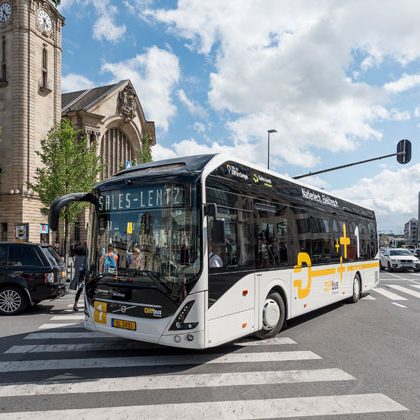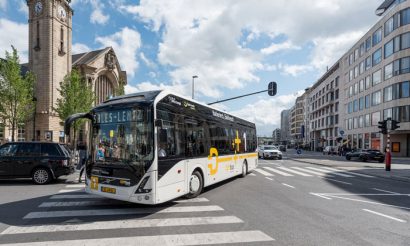Luxembourg to start operation of all-electric buses
- Like
- Digg
- Del
- Tumblr
- VKontakte
- Buffer
- Love This
- Odnoklassniki
- Meneame
- Blogger
- Amazon
- Yahoo Mail
- Gmail
- AOL
- Newsvine
- HackerNews
- Evernote
- MySpace
- Mail.ru
- Viadeo
- Line
- Comments
- Yummly
- SMS
- Viber
- Telegram
- Subscribe
- Skype
- Facebook Messenger
- Kakao
- LiveJournal
- Yammer
- Edgar
- Fintel
- Mix
- Instapaper
- Copy Link
Posted: 20 June 2017 | Intelligent Transport | No comments yet
The first commercially manufactured all-electric Volvo buses have started operating in the city of Differdange in Luxembourg.


The first commercially manufactured all-electric Volvo buses have started operating in the city of Differdange in Luxembourg.


The buses, named the Volvo 7900 Electric, can carry 85 passengers and are 12-metres long with low floors and three doors. They have 80% lower energy consumption than a comparable diesel bus, are silent, exhaust emission-free and are equipped with an electric motor and lithium-ion batteries.
“The start of operations with the Volvo 7900 Electric marks yet another important step”
“The start of operations with the Volvo 7900 Electric marks yet another important step for all of us who work for a cleaner, quieter urban environment and more attractive public transport,” said Håkan Agnevall, President of Volvo Buses.
Sales-Lentz and Luxembourg’s sustainability drive
The operator in the city, Sales-Lentz, now has four electric buses, 12 electric hybrids, and 30 hybrids from Volvo in its fleet.
“Full electric was the next logical step after electric-hybrid, ahead [of] our strategy for sustainable urban mobility,” added Jos Sales, Director at Sales-Lentz. “Beginning September 2016, Sales-Lentz Autocars was commissioned a major project in green urban mobility: the Differdange-city buses 100% electric 12 metre urban buses. Start of operation: 2 May 2017. We are excited to have done this turn-around in exactly nine months with a very strong team formed of Volvo Gothenburg, Volvo Competence Center in Luxembourg, the city of Differdange, Heliox, ElectroWatt, Sales-Lentz technical department, and several other strong partners.”
Differdange’s focus on electrically powered buses is part of the city’s ambitious sustainability drive, with public transport forming a crucial focus area. The four electric buses are used on four routes with lengths from 8km to 9.5km.
Charging
Each bus is driven approximately 25 minutes and then the buses’ batteries are fast-charged in three to six minutes at the end stations using an open interface known as OppCharge (opportunity charging), which follows the ACEA (European Automobile Manufacturers Association) recommendations.
The charging stations in Differdange were supplied by Heliox.
Related cities
Luxembourg
Related organisations
Volvo Buses



